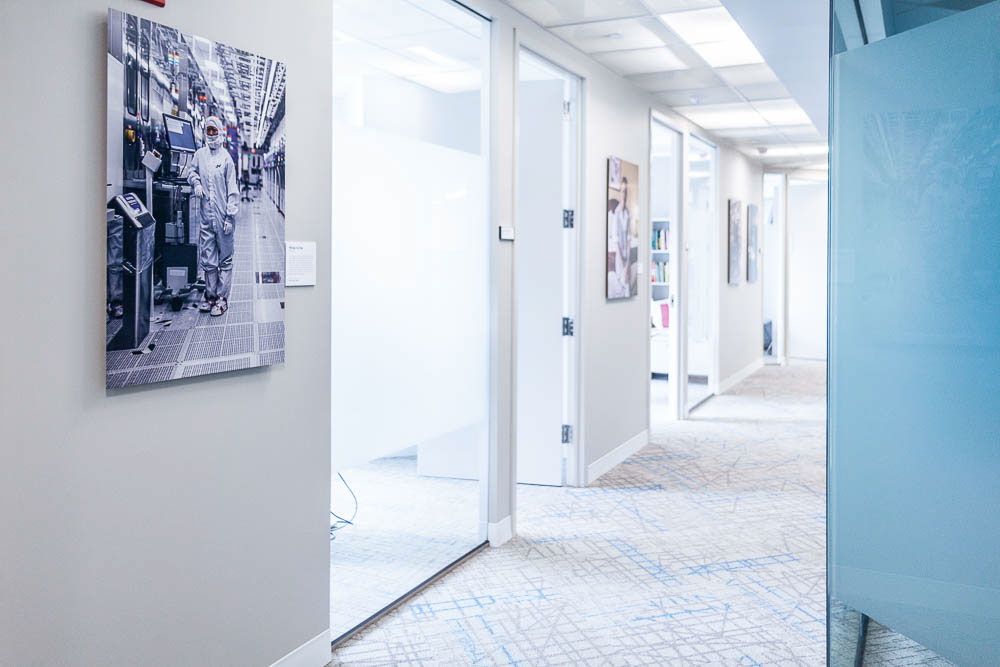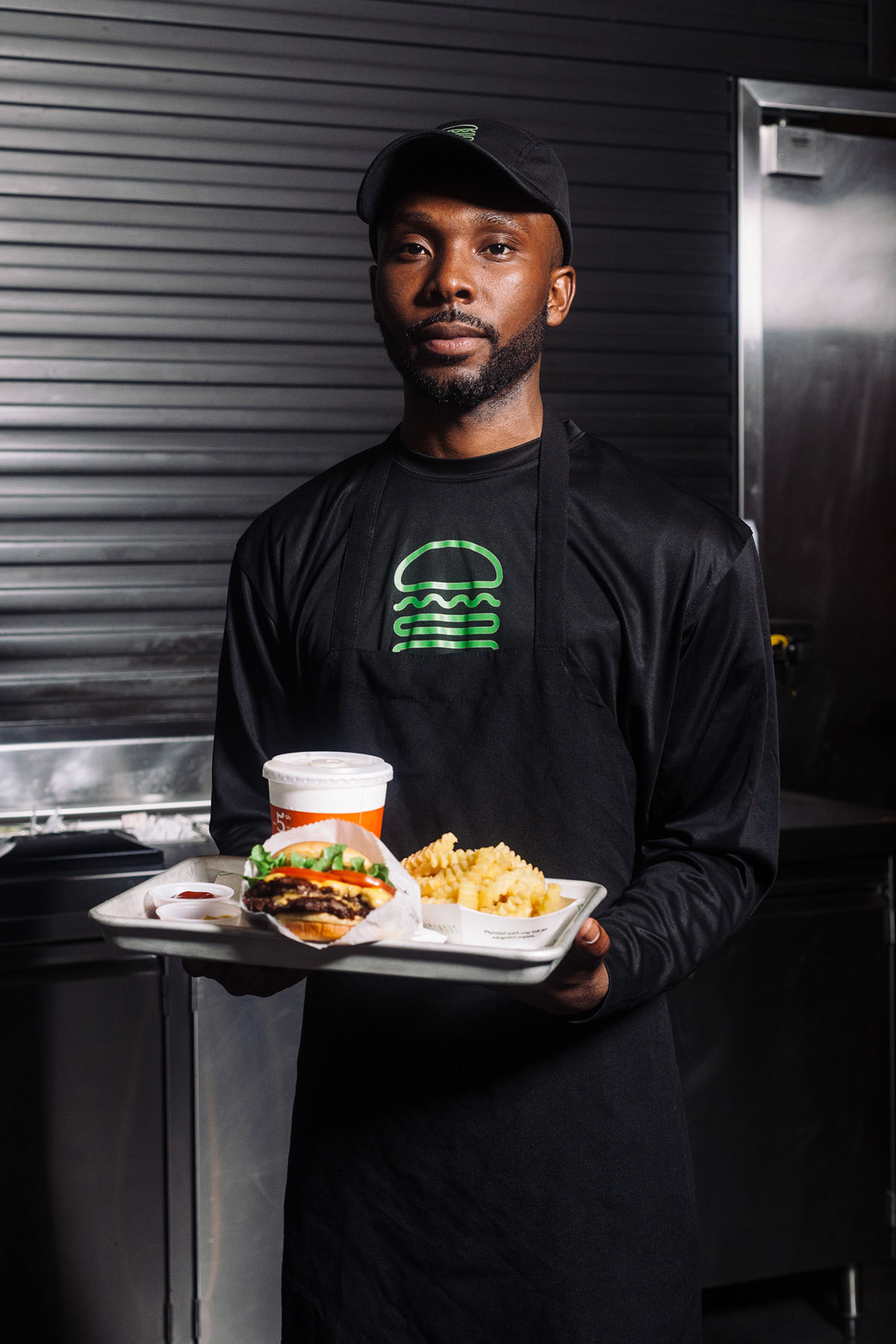About The Commission
Our goal with this project is to show the humanity of the work that the ECONOMIC POLICY INSTITUTE does while featuring stories from the people they seek to honor with their work on economic justice issues. From livable wages to unionizing and fair working conditions, it was our goal to connect the legislation and paperwork with the faces these things affect. We captured simple, honest portraits of working people of all stripes; a diverse mix of demographics, as well as a range of professions—from service, to white collar, to blue collar, and everything in between.
Taking part in this project was an honor; each subject shared a special part of their lives with me and I'm grateful to have had the opportunity to capture a single moment in time that encapsulates the impact they have on their communities. In doing so, they've impacted my life and reaffirmed the passion and appreciation that I have for all pieces of humanity.
I want each of you to remember this: you can never tell what impact you might have on someone just by being your pure self. Every session I shot in this project touched me in a way that charged me up, renewed my dedication to my mission of bringing awareness, and genuinely made me happy. When you look at each image, know that it wasn't just a picture of a person, but our way of sharing a little love with the world in the best way I know how. You're all amazing.

Each portrait was printed as a 40x30 aluminum print to match the strong, clean industrial aesthetic of the venue. Mounted throughout that floor of the office building, viewers are greeted with the portrait and accompanying placard containing the subject's pull quote from a larger audio interview conducted at each photo session.







Selected Portraits From The Gallery

Jessica Hawkins - Police Sergeant
One of my favorite quotes from Martin Luther King is, “Make a career of humanity, try and make yourself a better person, and make the world a better place.” I like protecting people, but more so, their rights. I’m passionate about people’s civil rights and just treating people right—regardless of who they are, or what they do, or how they identify, or what color they are, what religion they believe in. How scary is that for people living in some states that they could wake up and be fired just because their boss found out that they might be gay, or because they present as female because their true gender identity is female?
Being a part of a minority group now, being transgender, and being a transgender female police officer, you really see another side of people that you’ve never seen before. I really like my job and I like being able to advocate for those who can’t advocate for themselves. I do it from a law-enforcement point of view because a lot of the people in the LGBT community are scared of the police. I feel that when people in the LGBT community meet me, a transgender police officer, it gives them a sense of hope, a sense of, “I can be me” and be a productive member of society.
Photographed in DuPont Circle - Washington, DC

Roberto Rodas - Wastewater Treatment Operator
Every day here is something new. There are days where you’re not doing anything, but there are days where you walk in at 6 a.m. and you’re busy all the way to 6:30 p.m. A lot of people have misconceptions about what we do. There’s a lot of science to it. And once you start working here, you begin to understand it. Give us some respect for what we do. Give a little more credit to the guys here: 24 hours a day, this plant is running.
Photographed in Arlington, VA

Alex Restaino - Farmer
What I get from this job is a sense of balance in my life—being out in nature every day, getting to appreciate the world around me, and having a hand in contributing to nature. Being an organic farmer, we try to keep everything in check, keep everything in balance, and be aware of taking from the Earth, and then giving back to the Earth. We’re trying to get back to how things used to be but also be efficient and sustainable.
Photographed in Ashburn, VA

Jade Igwebe - Restaurant Manager and Server
When you come to work here, it’s not that you’re just serving or managing. A lot of different things are connected with this company, like treating everyone equally, with respect and love. A lot of our managers and people really high up in the company started as dishwashers and bussers. So it gives people hope when they come and work here.
One thing people don’t realize about our industry is that a lot of the servers—even me, when I was a full-time server—don’t make an actual hourly wage. We’re actually getting about $3 an hour.
Photographed in Washington, DC

Matt Wuerker - Editorial Cartoonist
I come from a proud American tradition of political satirists—people who used cartoon images to rabble-rouse and make political points. I think the world needs to lighten up about politics a little bit. Political cartooning can bring humor, and some visual wit, to a conversation and maybe turn down the temperature. It’s an old cliché to talk about bringing more light than heat to the political conversation, but ideally that’s what a good cartoon does. It breaks down barriers with humor and hopefully opens people’s eyes to a point of view that maybe they would block out otherwise.
Photographed in Arlington, VA

Charles Segars - Letter Carrier
I meet new people all of the time doing this job. People don’t really go to the store as much as they used to. They order a lot of things online and we deliver it. It’s kind of changed with technology—customers will know when packages are delivered to their door in real-time. People look forward to seeing me coming. I just provide a service to the public.
Photographed in Alexandria, VA

Tunisia McCoy - Retail Sales Worker
My job is important because I make sure everybody is happy. I make sure their needs are met, whether it be within my staff, with regular customers, or tourists. Life is all about happiness, it’s all about comfort. To put on a pair of denim that you take care of, it allows you to be yourself in almost any situation or any circumstance. Once you’re comfortable, you’re able to do whatever you need to do. You look good, you feel good, so it just keeps you going.
Photographed in DuPont Circle - Washington, DC

Moses Kilwake - Electrician
This job is what I’ve been doing all my life, and this is what supports my family. Without an electrician, nothing can ever move.
Photographed in Downtown Washington, DC

Gil Nissley - Bicycle Mechanic
I get satisfaction from working with people and fixing their problems. They bring their bikes to us and this is their transportation—this is how they get back and forth to work, school, and appointments. People are getting away from cars and going to alternative methods of transportation; bicycles are having a big resurgence. You need a qualified bike mechanic to make sure that people are safe, that the bikes they have operate properly, and are safe to ride in traffic. It’s important to have a mechanic who knows what they’re doing.
Photographed in Adams Morgan - Washington, DC

Hassan Ali - Staff Assistant for Rep. Keith Ellison
I’m originally from Djibouti, East Africa. I’ve lived in the States about 18 years and I came here as a refugee. I think a lot of people who go into politics or public service go into it with a passion and a drive and want to change or better the system. When Congress has a 6 to 7 percent approval rating, it’s hard to see the human component of it. I see every day the type of work we actually do.
I really appreciate that Keith is the first Muslim in Congress. One thing we see in this office is that all of the issues when it comes to Muslims are framed through the premise that these are average Americans who care about average issues, and it’s not just a Muslim issue. In this building and in Congress as a whole, when we talk about Muslims, it’s always through the context of foreign policy. It’s never just, “Muslims want to go to well-funded schools,” or “Muslims care about the economy.”
My job is a gateway for people who in the future want to make an impact on this government and system that we have. In our line of work, a small victory is a huge deal, especially when you’re in the minority.
Photographed in Washington, DC

Amy Kossoff - Doctor
I see a mostly homeless population of patients in shelters and places that serve the homeless. I meet amazing people, who have had many struggles in their lives, yet I learn an immense amount from them. They are so often resilient, strong, and just provide me with incredible job satisfaction.
I provide health care to people who otherwise wouldn’t have it, and sometimes it’s more important to listen and hear people’s stories who are rarely heard, and people who rarely get to tell their stories. I wish the world was more interested in their stories.
Photographed in Georgetown - Washington, DC

Lidia Núñez - Hotel Housekeeper
My thoughts: Lidia didn't speak very much english, but was such a gripping subject when I first saw her I reached out to hotel management to see if they could help me out. After the initial skepticism (used to that by now being who I am and looking how I look), Lidia and her manager were on board and excited to take part in the project.
Her eyes and hands tell such a rich story; we actually just sat and looked at each other for a little bit at first, getting comfortable and exchanging our energy. This was one of my favorite sessions because I felt her. There was a pureness and geunine attentiveness she exuded that has stayed with me ever since.
Photographed in Laurel, MD

Kevin Henry - Bus Operator
This job provides meaningful, satisfying work, with a salary and benefits package that allow me to take care of myself and my family. I’m able to contribute to the economy by paying taxes and making everyday purchases that provide job opportunities for others. I’m also able to meet many interesting people, whose stories and experiences contribute to my life.
Public transit provides communities with economic opportunities by transporting large numbers of people, it provides the elderly and the physically and economically disadvantaged with a convenient, inexpensive way to move from their homes to school, to stores, and to access other services. And the public transit system employs thousands of people in the D.C. metro area alone. Most of these people, like myself, do not have advanced education. If such a large number of jobs paying livable wages were eliminated, it would be devastating to our communities.
Photographed in Washington, DC

Orlando Rickman - Food Service Worker
I like the fact that we’re downtown, so it’s a myriad of people that come in, and from different walks of life. I’m able to be here and say, “Hello, how are you doing?” People have to eat every day and if you can make them happy, why not? I like to talk, I like to engage, I like to meet new people. I like to say hello and good morning. Normally that’s a Down South thing, but we’re in the nation’s capital and it’s a political city. So someone always has something to say.
Photographed in Washington, DC

Arly Reyes - Child Care Worker
There’s nothing more important to me than working with children. I enjoy everything that children do—they make me happy. Daycare is as important as high school and college—it is that first step. You cannot go to college if you did not go to first and second grade. Daycare is the foundation.
Photographed in Takoma Park, MD






